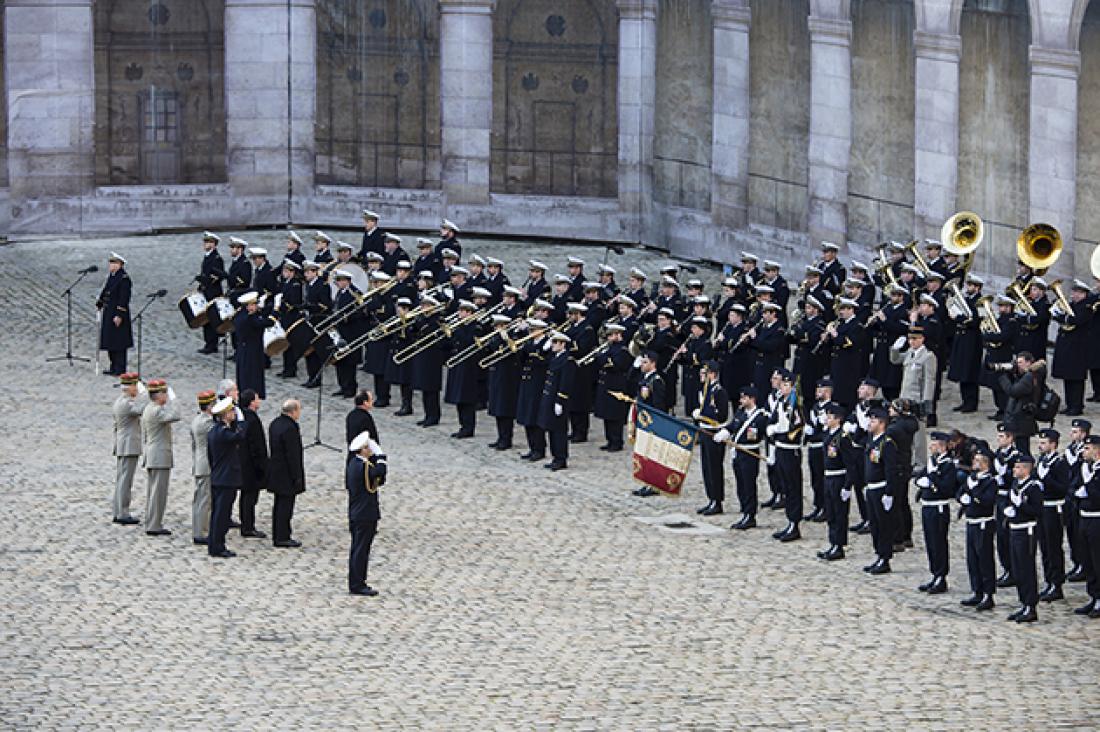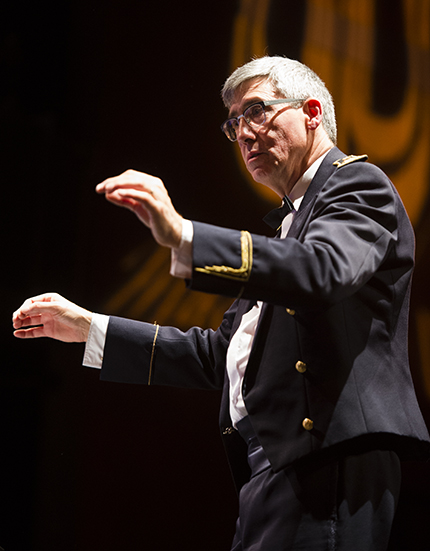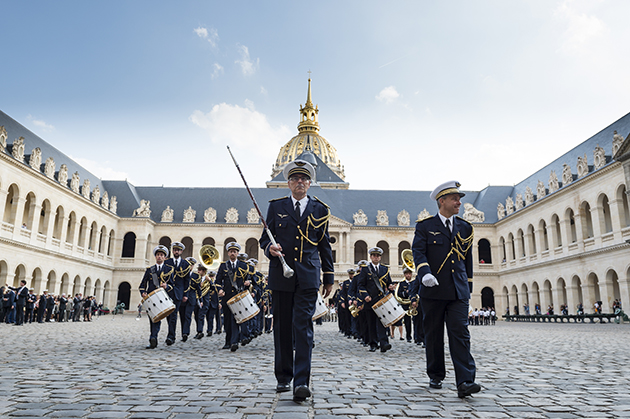Commemorating through music

Colonel Claude Kesmaecker has been director of French air force band the Musique de l’Air for the past 15 years. Made up entirely of professional musicians, the Musique de l’Air embodies the prestige and excellence of air force values. It takes part in the military ceremonial and also performs across France and overseas.

Colonel Claude Kesmaecker. © Richard Nicolas-Nelson/Armée de l’Air/Défense
Could you please introduce yourself and tell us a bit about the history of the Musique de l’Air?
The Musique de l’Air was founded in a very short space of time, two years after the birth of the French air force (the Armée de l’Air) in 1936. Based on the model of the Garde Républicaine, the Musique de l’Air was formed of high-level musicians and had commander Claude Laty as its first musical director.
Stationed at airbase 107 “Sous-lieutenant René Dorme”, in Villacoublay, in the Paris area, the Musique de l’Air disseminates and promotes the values of the French air force, in France and overseas.
The orchestra takes part in ceremonies, performs concerts in France and abroad, and pays regular tributes to senior State officials and foreign dignitaries on official visits to France. Meanwhile, as part of the cultural events programme of the Musée de l’Armée, the Musique de l’Air is regularly involved in youth education projects and performs at prestigious venues like the Hôtel National des Invalides or the Pantheon.
For my part, I have directed the Musique de l’Air since March 2005, having previously been a musical director in the French army (deputy director of the Conservatoire Militaire) and navy (director of the Musique des Équipages de la Flotte de Brest).
Music has always been present in commemorative ceremonies. What is its role in ceremonial ritual?
Music plays a vital role in ceremonial ritual. It is twofold. Firstly, it spotlights each of the commands at each stage of the ceremonies (each command has its own official bugle call).
Secondly, music is essential to the performance of the national anthem, troop review and, where appropriate, troop parades.
So it is crucial to fulfilling the protocol of the Republic.
Has music’s place in the ceremonies evolved in recent years, in your view?
Has the repertoire of the Orchestre d’Harmonie de la Musique de l’Air expanded?
The place of music has not changed in recent years, insofar as the ceremonial ritual is codified and immutable.
But the repertoire of the Orchestre d’Harmonie de la Musique de l’Air is constantly changing. This is to cater for the multiple expectations of audiences and concert programmers. It has expanded considerably with works and arrangements made specially and exclusively the Musique de l’Air. Finally, the Musique de l’Air does not hesitate to include new composers in its repertoire, to reflect the opening up of the air force to civil society and young people.
Since you have been directing the orchestra, is there a ceremony or event that has particularly moved you?
A number of events have been particularly important and/or moving. One example is international festivals, such as our participation in the International Virginia Tattoo in Norfolk, USA, in 2017, marking the centenary of the United States’ entry into World War I, which saw some productive encounters with musicians from other countries.
And our appearance on Jean-François Zygel’s TV show “La Boîte à Musique” was an opportunity to introduce the Musique de l’Air, and military bands more broadly, to a wider audience.
Not to mention prestigious and important ceremonies, one that was particularly moving being the funeral ceremony which followed the Albacete air crash in Spain, in 2015.

Farewell ceremony for General G. Maire, 23 September 2016 © Anthony Jeuland/Armée de l’Air/Défense
What place does the Musique de l’Air have today in the military culture of our country, and in French cultural heritage more generally?
The Musique de l’Air has always occupied an important place among military bands. Because of its geographical location and the quality of its musicians, the Musique de l’Air continues to serve as a model for many other bands.
As a result of the opening up of the air force by its senior leadership, today the Musique de l’Air is regularly invited to prestigious festivals. For instance, it regularly performs at La Folle Journée in Nantes and across the Pays de la Loire region. It also has a strong presence in the musical season at the Musée de l’Armée (Les Invalides) and is actively involved in youth-oriented activities (educational concerts). Lastly, a wide variety of partnerships with conservatoires and French musical institutions mean it regularly works with international soloists.

